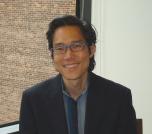An Interview With Hirokazu Yoshikawa
Author of the new RSF book Immigrants Raising Citizens
 Hirokazu Yoshikawa, a professor of education at Harvard University, is the author of Immigrants Raising Children, published by the Russell Sage Foundation in early 2011. A former Visiting Scholar, Yoshikawa used data from a three-year study of roughly 400 infants from Dominican, Mexican, Chinese and African American families, which included in-depth interviews, in-home child assessments and parent surveys. He previously co-edited Making It Work, an examination of how different employment trajectories affect the social and emotional lives of poor women and their children.
Hirokazu Yoshikawa, a professor of education at Harvard University, is the author of Immigrants Raising Children, published by the Russell Sage Foundation in early 2011. A former Visiting Scholar, Yoshikawa used data from a three-year study of roughly 400 infants from Dominican, Mexican, Chinese and African American families, which included in-depth interviews, in-home child assessments and parent surveys. He previously co-edited Making It Work, an examination of how different employment trajectories affect the social and emotional lives of poor women and their children.
Q: In your book, you argue policymakers largely ignore the potential of children born in the United States to undocumented workers. Why is it important to shift the public debate on this issue?
Yoshikawa: At a historic moment in the U.S., when the baby boomer generation is retiring, we cannot afford to ignore the early development and later potential of 4.5 million citizen children of the undocumented. We need to maximize the learning potential of each and every child because we will rely on them in future decades to support a rapidly aging society.
Q: A central theme of your book is that our laws have created a 'policy paradox' -- that is, illegal immigrants do not have access to government programs, but their citizen children do. Why is this a problem?
Yoshikawa: Citizen children don't get access to learning opportunities -- high quality child care, pre-school, for example -- because their parents are living under the radar and have less information about such programs, and also more reluctance to go through the paperwork required for the programs.
Q: Which public assistance programs aimed at children do undocumented workers use? Why are some programs used more than others?
Yoshikawa: In our study, which is limited to New York City, the public hospitals were very successful in signing up these parents in the Women, Infants and Children program, a very important program associated with fewer infant health problems and better nutrition. [For more information on WIC, click here.] When programs were perceived as directly helping children's development, and were provided in trusted settings with relatively easy enrollment in the parents' primary language, take-up was higher.
Table 3.1, taken from Immigrants Raising Children, shows the use of public assistance programs in New York City:

Q: At one point in your book, you connect smuggling costs, child care expenses, and a drop in breast-feeding rates. Could you discuss this finding?
Yoshikawa: This is relevant to the recent wave of Chinese low-income immigrants in New York City from Fujian province. Due to debts to smugglers, these parents work very long hours in restaurants and could not afford infant child care. They also typically did not have grandparents in the U.S. who could take care of their new baby, so they usually sent the baby back to China to be raised by his or her grandparents. The plan for these families was to bring the child back for school entry in the U.S.
|
Q: Given the currently dim prospects for immigration reform, what concrete solutions exist to ensure we develop the full potential of this group of children?
Yoshikawa: Programs and policies should consider low-income immigrant families in general, and make sure that access to good quality child care and preschool opportunities occurs in this group. Another idea is to harness the power of faith-based organizations in these families' lives to model important developmental outcomes and family processes, like parental psychological well-being.
A summary of the book's findings, presented at a briefing to the U.S. Congress, can be read here.

